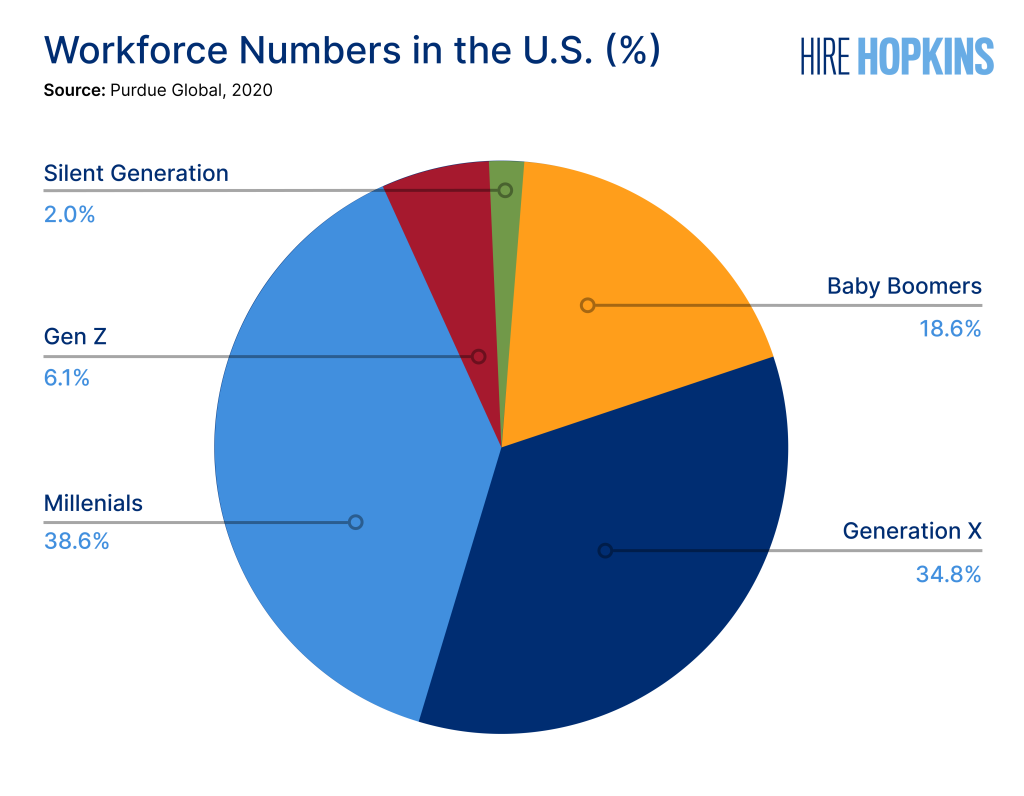5 Tips for 20-Year-Olds Entering the Workforce Successfully. Discover essential advice with our 5 Tips for 20-Year-Olds Entering the Workforce Successfully. Get ready to kickstart your career with confidence!

5 Tips for 20-Year-Olds Entering the Workforce Successfully
Understand the Job Market
Getting acquainted with the job market is essential for anyone entering the workforce. For 20-year-olds, this understanding can shape job search strategies & ultimately influence career paths. Researching industry trends, salary expectations, & employment rates provides valuable context. Websites like LinkedIn, Glassdoor, & industry-specific platforms allow young adults to explore different roles, categorize companies by reputation, & connect with potential employers.
To truly grasp the job market, consider compiling a list of desired roles & fields. Analyze what companies seek in candidates & understand industry jargon. Possible activities to enhance knowledge include:
- Sourcing job postings regularly for specific roles.
- Participating in workshops or career fairs to meet industry professionals.
- Joining online forums or communities related to professional interests.
Build a Strong Resume & Cover Letter
A well-crafted resume & cover letter serve as the gateway to job opportunities. Young individuals entering the workforce should prioritize creating documents that highlight relevant skills, experiences, & achievements. Tailoring each application for specific roles demonstrates enthusiasm & attentiveness. Begin by focusing on the following:
- Incorporate keywords from job descriptions to pass Applicant Tracking Systems (ATS).
- Showcase internships, volunteer positions, & projects that underline commitment & growth.
- Keep formatting clean & professional, ensuring that both documents are easy to read.
It’s beneficial to seek out feedback on these documents from mentors, peers, or career services. This external input can provide additional insights on how to bolster the effectiveness of a resume & cover letter.
Networking is Key
Building a robust professional network stands as a critical component in securing job opportunities. Although daunting, a solid network can lead to referrals, mentorship, & insider information about job openings. For new entrants in the workforce, here are some strategies:
- Attend industry events & meetups to connect with professionals.
- Utilize platforms like LinkedIn to reach out to alumni from educational institutions.
- Engage in conversations with colleagues or classmates to cultivate connections.
On top of that, maintaining relationships through follow-up emails or social media interactions showcases dedication & fosters deeper connections. As Rosalinda Aufderhar once stated,
The connections you forge today can lead to opportunities tomorrow.
Develop & Showcase Soft Skills
While technical skills may land a candidate an interview, soft skills often make the determining factor in hiring decisions. For 20-year-olds, developing & showcasing these skills can significantly enhance employability. Focus on competencies such as:
- Effective communication, both verbal & written.
- Problem-solving abilities & critical thinking.
- Team collaboration & adaptability to change.
These attributes can be demonstrated through various experiences, whether in academic settings, volunteer work, or part-time jobs. Highlighting instances where these skills were utilized in a resume can make a significant impact on hiring committees.
Embrace Continuous Learning
The workforce continues to evolve, making the pursuit of additional knowledge essential. For 20-year-olds entering the workforce, a mindset focused on continuous learning can yield long-term benefits. Actively seeking opportunities to further develop both hard & soft skills enhances versatility & marketability. A few ways to embrace ongoing education are:
- Participating in online courses or certification programs relevant to one’s career path.
- Reading industry-related books, articles, & research to stay informed on current trends.
- Seeking mentorship from experienced professionals to gain insights & advice.
A commitment to learning reflects ambition & adaptability, traits that employers value highly in potential candidates. Providing evidence of ongoing professional development on resumes & during interviews can reinforce a candidate’s value in the job market.
| Tip | Key Action |
|---|---|
| Understand the Job Market | Research industry trends & employment rates. |
| Build a Strong Resume & Cover Letter | Tailor applications using job description keywords. |
| Networking is Key | Attend events & engage on LinkedIn. |
| Develop & Showcase Soft Skills | Highlight testimonials or examples on resumes. |
| Embrace Continuous Learning | Enroll in courses & seek mentorship. |
5 Tips for 20-Year-Olds Entering the Workforce Successfully – Summary of Key Insights
Understanding the Dynamic Job Landscape
Grasping the current job landscape is fundamental for young job seekers. It’s more than just knowing where to apply; it involves comprehending the broader economic conditions & how they influence career choices. The importance of this knowledge cannot be overstated, as it allows 20-year-olds to position themselves strategically in the job market.
Best practices include engaging with job boards, subscribing to career newsletters, & leveraging social media platforms to gain real-time insights. Being proactive about seeking out industry news keeps young professionals ahead of trends & discussions that matter within their chosen fields.
Crafting Personalized Applications
The significance of a tailored application in today’s job market cannot be ignored. Generic resumes & cover letters often lead to missed opportunities. Instead, focus on crafting personalized documents for each job application. Make sure to correlate personal experiences with the needs of the employer.
Examine job postings closely to identify key qualifications & experiences. Draft unique versions of a resume that emphasize qualities deemed crucial for the specific role. Understand that your application is your first chance to make a lasting impression, so invest time in ensuring that each document reflects personal strengths & aligns with company values.
Building Lasting Connections
Establishing a strong network creates pathways toward job opportunities & career growth. For many 20-year-olds, the concept of networking may feel foreign, but it does not have to be intimidating. Start by connecting with peers, mentors, or professionals in the desired career field.
Active participation in networking opportunities, such as seminars or industry conferences, can lead to meaningful relationships. Engage in thoughtful conversations & make a genuine effort to connect with others. Every interaction is another chance to broaden one’s professional network.
Emphasizing Personal Development Skills
Soft skills often exemplify a candidate’s personality & ability to work in team-oriented environments. Employers prioritize candidates who exhibit strong interpersonal skills, making it essential for young job seekers to develop these personal qualities. Focus on improving communication, teamwork, & conflict resolution abilities through practice & self-reflection.
Participate in group projects, volunteer experiences, & other collaborative activities that provide opportunities to enhance these skills. Document situations in which these competencies are applied; such evidence can be invaluable during interviews.
Investing in Lifelong Learning
A commitment to lifelong learning signifies a strong work ethic & dedication to self-improvement. As industries shift, remaining adaptable through educational pursuits, either formal or informal, ensures career relevancy. Identify areas for growth, whether technical skills specific to the industry or broad competencies applicable across various fields.
Consider engaging in professional development through academic programs, workshops, or online courses. Platforms like Coursera or Udemy offer accessible learning opportunities on a wide range of topics. By continually seeking to gain knowledge, 20-year-olds can set themselves apart in the job market & enhance overall professional competence.

Networking Effectively
Creating connections in professional settings can significantly boost your career prospects as a young adult. Networking is not merely about piling up contacts; it’s about building meaningful relationships with people who can help you in your career pursuits. Start by attending industry-related events, workshops, & alumni meetings. Every interaction is an opportunity to learn from others’ experiences. Consider reaching out via platforms such as LinkedIn or local professional groups. Keep your conversation genuine & focused on shared interests. Remember to follow up after a meeting; sending a brief thank-you message can make a positive impression & keep the conversation going. Networking has played a crucial role in my career development, as I connected with mentors who guided me with invaluable insights.
Steps to Build a Strong Network
- Join industry-related events & workshops.
- Engage with alumni from your college or university.
- Utilize social media platforms like LinkedIn effectively.
- Always follow up with new contacts.
- Be generous in offering help to others in your network.
Crafting a Compelling Resume
Your resume serves as the first impression you make on potential employers. Therefore, it should reflect not just your academic achievements but also your skills & experiences. Focus on tailoring your resume to each position you’re applying for, highlighting relevant experience & skills. Use clear & concise language, with bullet points to outline your duties & achievements. Quantify your accomplishments if possible, as numbers can make your experiences more tangible. Including internships, volunteer work, & projects can set you apart from other candidates. When I applied for my first job, I spent hours refining my resume, which ultimately helped me land an interview.
Key Elements of a Strong Resume
| Section | Description |
|---|---|
| Contact Information | Your name, email, & phone number. |
| Summary Statement | A brief overview of your skills & career goals. |
| Education | Your degrees & certifications. |
| Experience | Previous jobs & internships highlighting relevant skills. |
| Skills | A list of relevant skills related to the job you’re applying for. |
Prepare for Job Interviews
Job interviews can be intimidating, but preparation is key to feeling confident. Start by researching the company & its culture so you can tailor your answers to fit. Prepare responses to commonly asked questions, such as “Tell me about yourself” or “What are your strengths & weaknesses?” Practicing answers with a friend or in front of a mirror can help with delivery. Dress appropriately for the interview & maintain a positive demeanor. Whether it’s through nonverbal communication, like a firm handshake or eye contact, confidence can significantly influence the outcome. I remember my first interview well, feeling nervous but also excited, & practicing helped calm my nerves.
Common Interview Questions to Prepare For
- Can you tell me about yourself?
- Why do you want to work here?
- What are your greatest strengths?
- Describe a challenge you faced & how you overcame it.
- Where do you see yourself in five years?
Developing a Professional Online Presence
In this technology-driven society, having a professional online presence is essential. Social media platforms like LinkedIn provide an opportunity to showcase your skills, education, & experiences to potential employers. Make sure your profiles are up-to-date & reflective of your career aspirations. Consider sharing relevant articles, insights, or projects that resonate with your industry. Being active online can help demonstrate your passion & dedication to your chosen field. Remember, hiring managers often conduct online searches, so ensure that your online image aligns with the professional persona you want to convey. I made a point to curate my LinkedIn profile, which led to unexpected job offers & connections.
Components of a Strong Online Presence
| Component | Description |
|---|---|
| Profile Photo | A clear, professional image of yourself. |
| Headline | A brief statement about your professional identity. |
| Experience Section | Detailed summaries of your job roles & responsibilities. |
| Endorsements | Skills endorsements from people in your network. |
| Engagement | Regularly posting or commenting on relevant industry topics. |
Continuous Learning & Skill Development
In a competitive job market, continuous learning can differentiate you from others. Take initiative by enrolling in online courses, attending workshops, or reading industry-related materials. Many free or low-cost resources are available that can help you enhance your skills. Consider certifications that are recognized in your field, as they can bolster your resume & demonstrate dedication. And another thing, pursuing personal projects can enhance practical knowledge. Showing a consistent commitment to expanding your skills may impress potential employers. I often took extra classes while working, which not only improved my capabilities but also made me more attractive to employers.
Options for Skill Development
- Online courses through platforms like Coursera or Udemy.
- Member workshops or webinars in your field.
- Professional certifications that enhance your profile.
- Reading books & articles relevant to your industry.
- Networking with professionals to gain insights & recommendations.
“Success in the workforce is built on relationships, preparation, & a commitment to continuous improvement.” – Prof. Dane McKenzie

What are the key skills I should develop before entering the workforce?
Focus on communication, teamwork, problem-solving, & time management. These skills are essential in a professional setting & can significantly enhance your employability.
How can I gain work experience as a 20-year-old?
Consider internships, part-time jobs, or volunteer opportunities in your chosen field. These experiences provide practical skills & can improve your resume.
Why is networking important for young professionals?
Networking helps you build relationships with industry professionals, provides access to job opportunities, & allows you to gain insights into your field.
What should I include in my resume?
Highlight relevant education, work experience, skills, & any certifications. Tailor your resume to the job you are applying for, emphasizing experiences that align with the position.
How can I prepare for a job interview?
Research the company, practice common interview questions, & prepare questions to ask the interviewer. This preparation can help you feel more confident & make a positive impression.
Conclusion
Starting your career in your 20s can feel a bit tricky, but it can also be exciting! Remember to keep learning & don’t be afraid to ask questions. Make connections with others & show your enthusiasm at work; it really makes a difference. Being flexible & open to new experiences will help you grow. Also, take time to think about what you really want in your career. Using these tips can help you feel more confident & ready as you step into your job. Every little effort counts, so go in with a positive attitude & watch how far that takes you!
